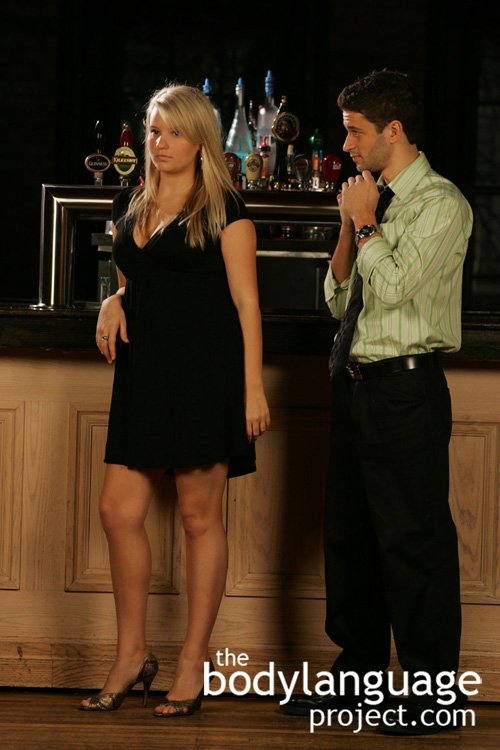Hugging one’s self is a defensive and closed body position. Those who take up this posture invariably exclaim that they are cold, which is sometimes the case, but usually the cold sensation is a function of feeling awkward and uptight. When temperature is actually a factor, the arms will cross and the hands will be tucked under the armpits in effort to heat them up. Other times, the arms will hug the body tightly in a full embrace but they will shiver and hold their legs stiff crossing them tightly as if they need to use the washroom. If these cues are not present, and we still see a double arm hug it’s due to feeling uncomfortable and not feeling cold. By watching for all the cues in the cluster it is easy to tell which attitude is really present.
Those that habitually cross their arms are usually not aware that they are sending a bad message to others. However, arm crossing is a universally defensive posture so it is important to be aware of its use. In a business meeting or in a job interview holding the double arm hug posture will be read by others as being disagreeable even if the person really is cold. This effect might pass over if other’s feel the same chill, but when only one person in the room is seen looking uncomfortable, they will sense that something is up, even if just subconsciously. Those that are timid and shy by nature can also get the short end of the stick as others will quickly dismiss them as rude or antisocial.
When someone complains of feeling cold where the room temperature doesn’t warrant it, is a direct response to a limbic brain command that shunts blood from the skin toward the major muscles in preparation for the fight or flight response. The large muscles like the legs and arm need blood in order to prepare for combat and escape. This is largely in effect when people seem to go pale when under extreme stress and why others lose their apatite when under pressure. Again the blood moves away from the intestines toward the major muscles producing a cold sensation on the surface of the skin as blood moves deeper.



